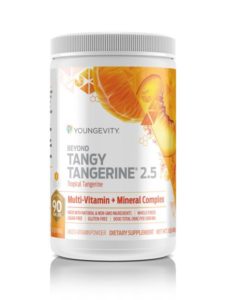
One in five people will deal with cognitive impairment. Within 5 years of the onset, half of those cognitively damaged will advance to dementia and fatality. The earlier we could slow down or stop this occurance, the better.
Although an efficient therapy for Alzheimer’s illness is unavailable, treatments to manage some factors could prevent countless cases. An enormous effort has actually been spent on determining such risk elements for Alzheimer’s and establishing therapies to decrease them.
In 1990, a little research of 22 Alzheimer’s clients reported high focus of homocysteine in their blood. The homocysteine tale goes back to 1969 when a Harvard pathologist reported about 2 youngsters, one dating back to 1933, whose minds had actually over time turned to mush. They both suffered from very uncommon genetic anomalies that resulted in abnormally high levels of homocysteine in their bodies. Is it feasible, he asked, that homocysteine could create brain damage even in people without congenital diseases?
Here we are in the 21st century, and also homocysteine is taken into consideration “a solid, independent danger factor for the development of dementia and Alzheimer’s illness.” Having a blood degree over 14 ( µmol/ L) may increase our danger. In the Framingham Study, researchers approximate that as lots of as one in 6 Alzheimer’s situations may be attributable to elevated homocysteine in the blood, which is currently thought to play a role in mental retardation as well as cognitive and memory decrease. Our body can purify homocysteine, though, using three vitamins: folate, vitamin B12, and vitamin B6. So why don’t we put them to the test?
Initially, the results were disappointing. Vitamin supplements did not appear to work, however the studies were tracking neuropsychological assessments, which are a lot more subjective compared to structural neuroimaging– that is, really seeing exactly what’s taking place to the brain. A double-blind randomized controlled trial found that homocysteine-lowering by B vitamins could slow the rate of increased mind atrophy in individuals with mild cognitive problems. As we age, our minds slowly degeneration, yet the shrinking is much increased in individuals dealing with Alzheimer’s illness. An intermediate amount of shrinkage is discovered in people with moderate cognitive problems. The thinking is if we could slow down the rate of brain loss, we could have the ability to slow the conversion to Alzheimer’s condition. Scientist tried providing people B vitamins for 2 years and also found it considerably reduced the effect of brain contraction. The amount of degeneration in those with high homocysteine levels was halved.
The useful result of B vitamins was constrained to those with high homocysteine, showing a relational shortage among those 3 vitamins. The majority of people obtain sufficient Vitamin B12 as well as B6. The factor these folks were stuck at a homocysteine of 11 µmoles per litre is that they most likely weren’t obtaining enough folate, which is found mainly in beans and also greens. Ninety-six percent of Americans do not even eat the minimal suggested amount of dark eco-friendly leafy veggies, and the same goes for beans.
If we place individuals on a healthy and balanced diet plan– a plant-based diet– we could drop their homocysteine degrees by 20% in just one week, from around 11 mmoles each liter down to 9 mmoles per liter. The fact that they showed rapid as well as considerable homocysteine reduction without any supplements suggests that several factors might have gone to work. The researchers recommend it might be due to the fiber. Every gram of daily fiber consumption may boost folate levels in the blood as much as 2%, possibly by increasing vitamin production in the colon by all our pleasant intestine microorganisms.
Homocysteine is a break down item of methionine, which comes primarily from animal protein. If we provide somebody bacon and eggs for breakfast and also a steak for supper, we could get spikes of homocysteine levels in the blood. Hence, decreased methionine consumption on a plant-based diet regimen might be one more factor adding to reduced, more managable homocysteine levels.
The paradox is that those that consume plant-based diet plans over long times, have awful homocysteine levels. Meat-eaters are up at 11 µmoles each liter, however vegetarians at virtually 14 µmoles per litre and also vegans at 16 µmoles each liter. Why? The vegetarians and vegans were getting more fiber and folate, yet not enough vitamin B12. A lot of vegans were at risk for struggling with hyperhomocysteinaemia (too much homocysteine in the blood) due to the fact that the majority of vegans in the study were not supplementing with vitamin B12 or consuming vitamin B12-fortified foods, which is vital for any individual eating a plant-based diet regimen. If you take vegans and also provide B12, their homocysteine degrees can drop down listed below 5. Why not down to just 11? The reason meat-eaters were stuck up at 11 is presumably since they weren’t getting adequate folate. Once vegans got sufficient B12, they can finally fully exploit the advantages of their plant-based diet regimens and see major benefit.
A balance of these 3 vitamins could certainly help to stave off the horrors of decreased brain health.





No comment yet, add your voice below!